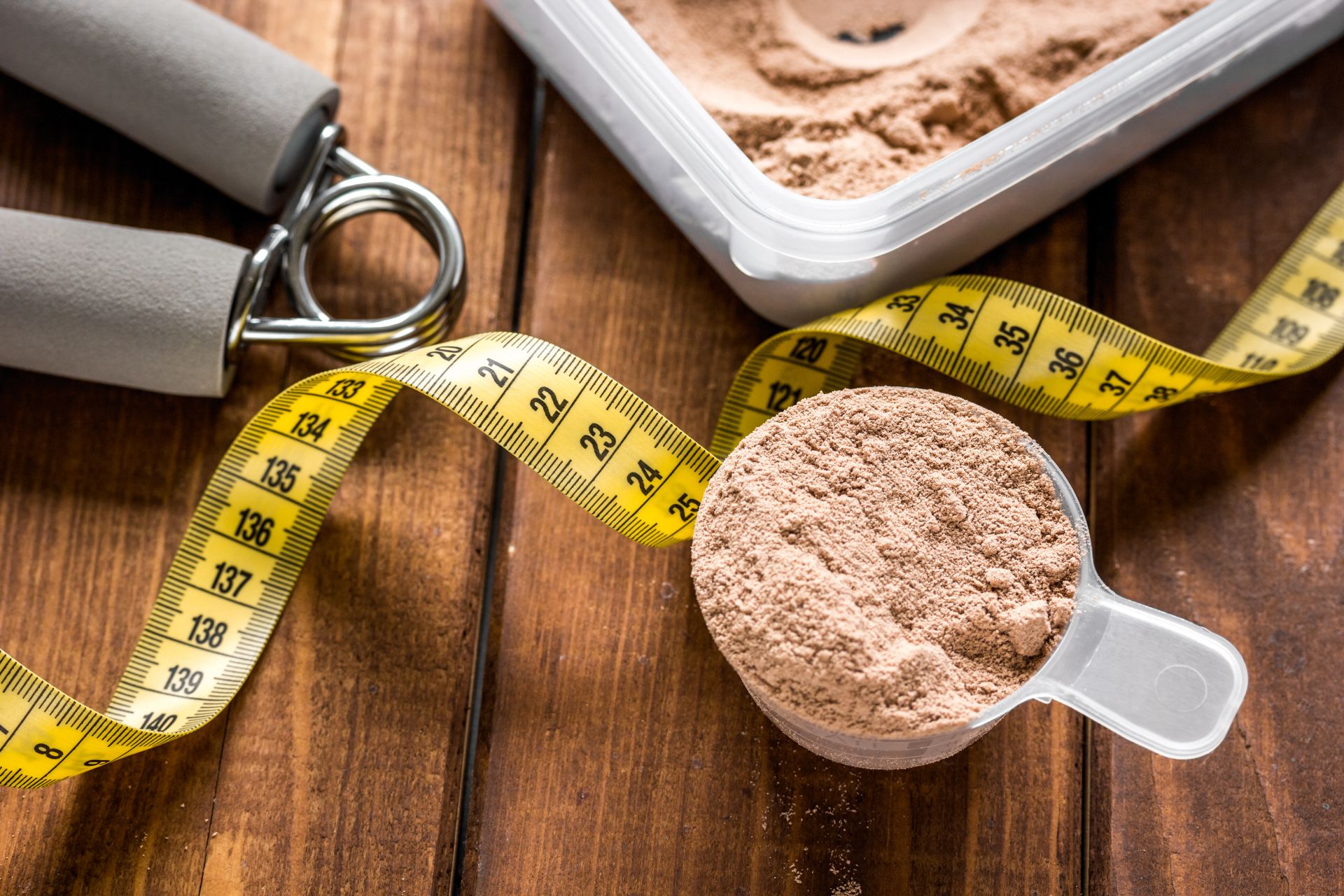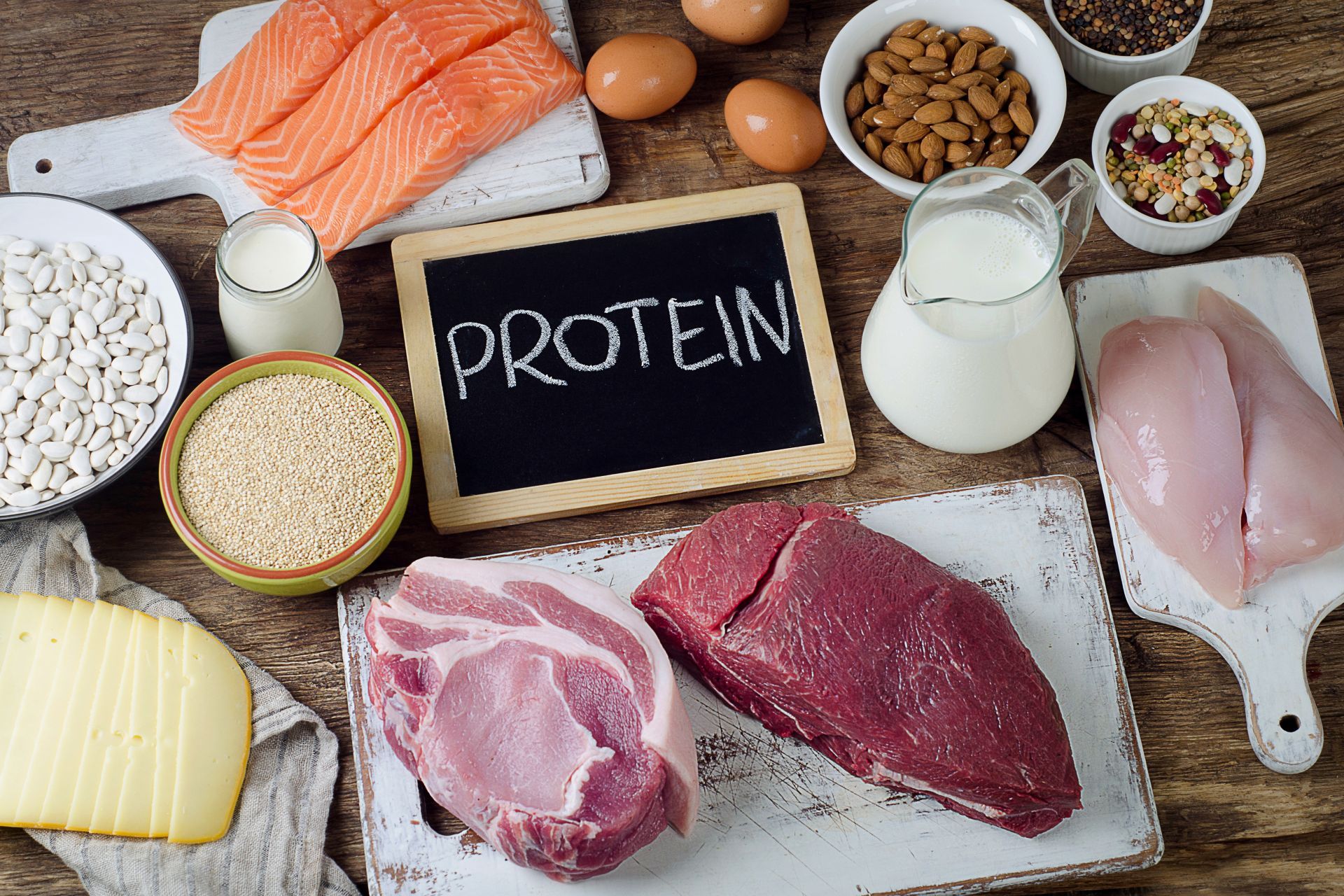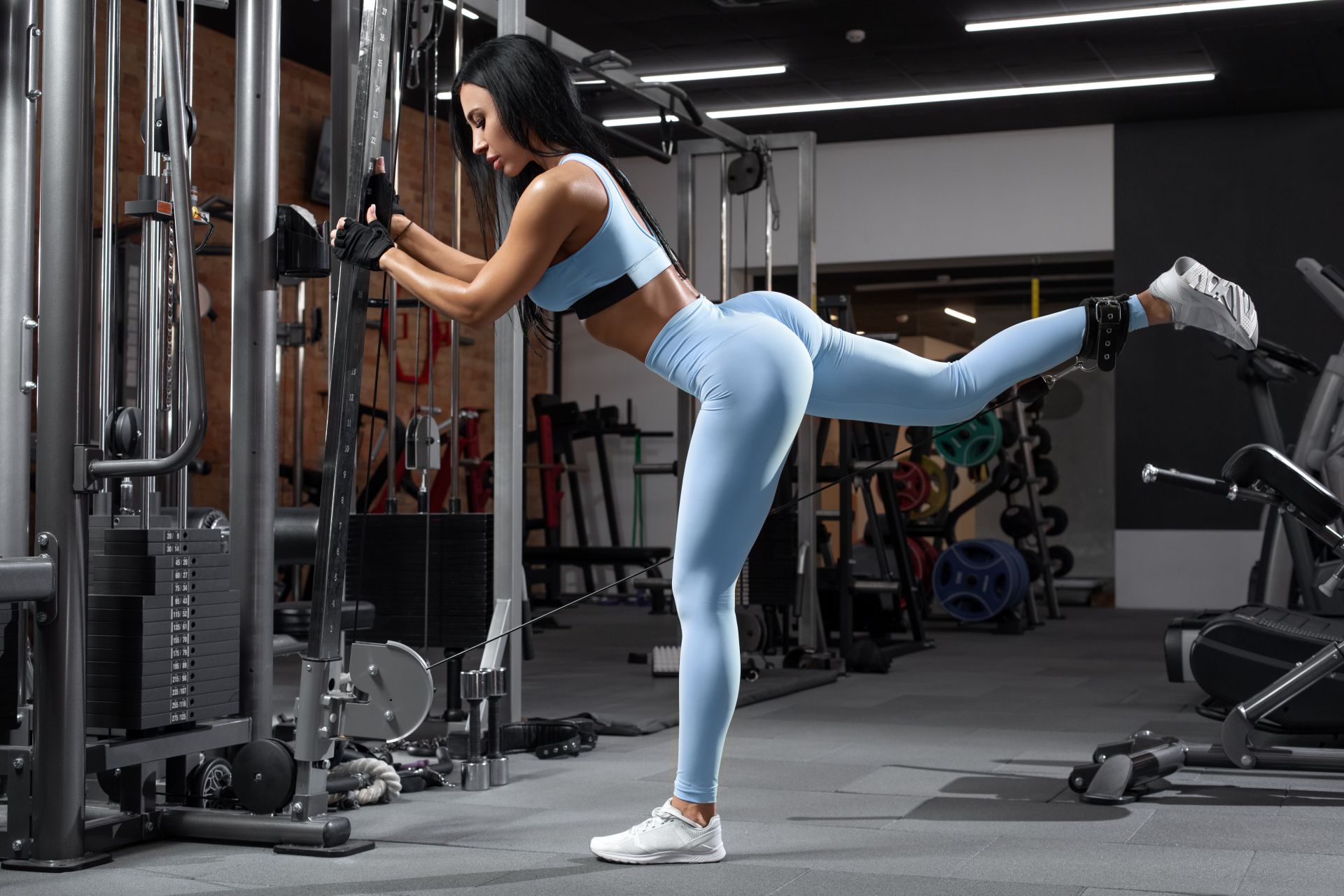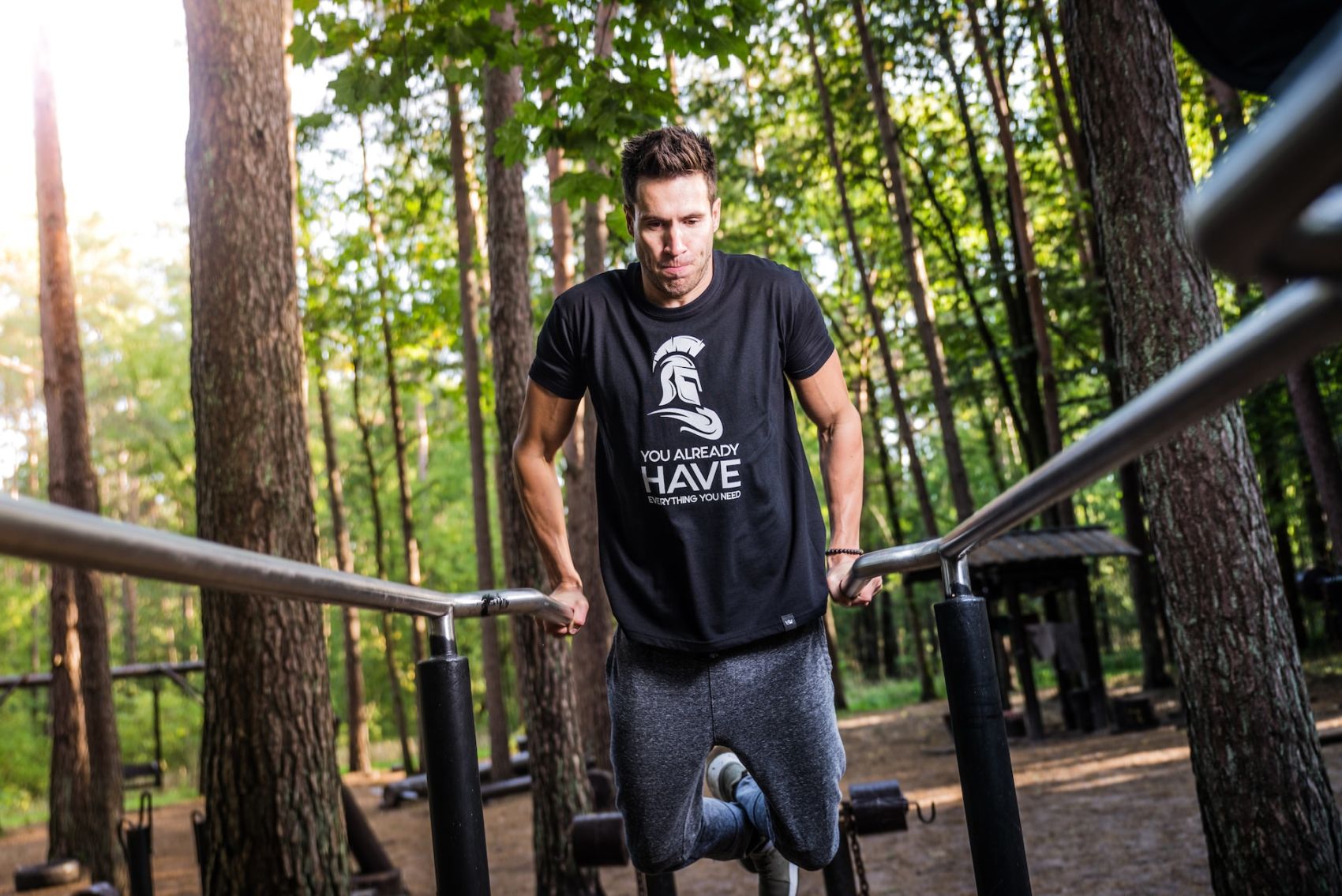
There is no doubt that athletes need much more protein than people with sedentary lifestyles. An adequate supply of protein in the diet of athletes is important for proper post-workout recovery, muscle mass development and physiological adaptation of the body to exercise. Let's find out how much protein should be in an athlete's diet and what are the valuable dietary sources of protein.
- Protein in the diet of an athlete - what functions does it perform?
- Protein in the diet of an athlete - food sources.
- Protein in the diet of an athlete - requirements
- Protein in the diet of an athlete - how many meals to eat?
- Protein in the diet of an athlete - whether to include vegetable protein?
Protein in the diet of an athlete - what functions does it perform?
Protein has an important function in the process of biological recovery after intensive training and physiological adaptation of the body to exercise. An adequate supply of protein in an athlete's diet promotes the repair of damaged tissues, skeletal muscle remodeling and beneficial structural changes in bones and tendons. Protein is an important initiating factor and substrate for the process of protein synthesis in skeletal muscle. Changes of an adaptive nature occur as a result of stimulation of the activity of the mechanism responsible for the process of protein synthesis, modified in response to an increase in the concentration of leucine and the supply of amino acids used to build new proteins.
Protein in the diet of an athlete - food sources.
There are a number of high-value foods that provide sizable amounts of protein for professional and amateur athletes. Among the main food sources of protein in the diet of athletes, are:
-
Cottage cheese (lean or semi-skimmed),
-
Country cheeses,
-
Scandinavian-type cheeses,
-
High-protein natural yogurts (e.g., Skyr Icelandic-type yogurt),
-
Soft cheeses (e.g., feta, mozzarella)
-
Yellow and moldy cheeses (preferably reduced fat),
-
Cow's milk,
-
Fermented dairy products (acidophilic milk, yogurts, kefir and natural buttermilk),
-
Sugar-free soy beverage,
-
Legume seeds and their preparations (including: soybeans, lentils, broad beans, chickpeas, peas, beans, tofu, tempeh),
-
Seitan (a vegan product derived from wheat gluten),
-
Fish (e.g.: pollock, cod, pikeperch, sole, salmon, Atlantic mackerel, halibut, rainbow trout, tuna),
-
Seafood (i.e., lobster, crawfish, crabs, shrimp, oysters, mussels, scallops, cockles, squid, and octopus).
-
Lean meats (i.e., skinless poultry, occasional red meat),
-
Eggs,
-
Nuts, seeds, seeds (i.e.: peanuts, pumpkin seeds, flaxseeds, sunflower seeds, sesame seeds, pistachio nuts),
-
Protein nutr ients (e.g. wheyprotein concentrate - WPC, whey protein isolate - WPI, soy protein isolate, pea protein isolate).

Protein in the diet of an athlete - requirements
The daily protein requirements of athletes range from 1.2 grams to as much as 2.2 grams per kg of total body weight, and mainly depend on the type of exercise undertaken. This means that not all athletes need to provide 2 g of protein for each kg of total body weight each day and necessarily include protein supplements in their diet to cover the increased protein requirements. Based on current guidelines, the following daily dietary protein intake for athletes is recommended:
-
1.2 to 1.4 grams per kg of total body weight in endurance sports (e.g., running, swimming, cycling, Nordic walking, sport walking),
-
From 1.2 to 1.7 g for each kg of total body weight in strength and endurance sports (e.g., Olympic doubles, power triathlon, combat sports, soccer, volleyball, basketball, tennis),
-
From 1.6 to 2.2 g for each kg of total body weight in silhouette disciplines strictly aimed at developing muscle mass (bodybuilding).
Protein in the diet of an athlete - how many meals to eat?
Athletes should consume 4-6 meals per day every 2-4 hours, depending on their physique and sports goals and their total daily energy and nutrient requirements. It is recommended that athletes provide 30-40 g of protein in at least 4 meals each day to ensure an adequate amount of essential amino acids, especially leucine at a minimum of 3 g, and to maximize muscle protein synthesis (MPS). It is worth remembering that one meal with a high protein content should always be consumed in the period of 2-3 hours before the start of exercise (especially strength training aimed at building muscle mass and strength), and the second within the first 2 hours after the end of the training unit.
Protein in the diet of an athlete - whether to include vegetable protein?
Today it is well known that plant protein should be included in the daily protein intake also when training is aimed at increasing muscle mass. An ever-increasing number of scientific studies show that a diet based solely on plant-based proteins (e.g., vegan) does not negatively affect the muscle mass-building process in gym-trained athletes if the daily amount of dietary protein is at a high enough level. In addition, there are no significant differences in the body's response to strength training in terms of the development of muscle mass and strength when an adequate amount of plant protein (e.g. soy, rice or pea-based protein supplement) or animal protein (whey protein supplement) is taken afterward. In addition, it is worth noting that if protein is consumed in sufficient amounts throughout the day, the quality of protein in a single meal is less important.
Sources:
-
Thomas DT, Erdman KA, Burke LM: American College of Sports Medicine Joint Position Statement. Nutrition and Athletic Performance. Med Sci Sports Exerc.; 2016. 48(3):543-568.
-
Schoenfeld BJ, Aragon AA.: How much protein can the body use in a single meal for muscle-building? Implications for daily protein distribution. J Int Soc Sports Nutr.; 2018. 15(1):10.
-
Jäger R, Kerksick CM, Campbell BI, et al: International Society of Sports Nutrition Position Stand: protein and exercise. J Int Soc Sports Nutr.; 2017. 14(1):65-77.
-
Phillips SM, Chevalier S, Leidy HJ: Protein "requirements" beyond the RDA: implications for optimizing health. Appl Physiol Nutr Metab.; 2016. 572(February):1-8.
-
Hevia-Larraín V, Gualano B, Longobardi I, et al.: High-Protein Plant-Based Diet Versus a Protein-Matched Omnivorous Diet to Support Resistance Training Adaptations: A Comparison Between Habitual Vegans and Omnivores. Sports Med. 2021 Feb 18.
 ⮜ Previous article
⮜ Previous article
When is the best time to exercise? - Training in the morning or evening
 Next article ⮞
Next article ⮞